From the Classroom
We’re sharing the latest news, updates, and ongoings at the Akilah Institute. Here’s what you need to know this week!
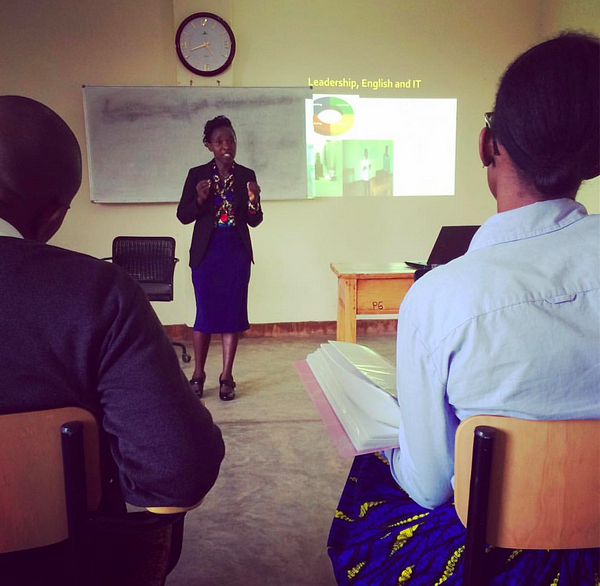
Elizabeth Nyiranziza will graduate from Akilah’s Entrepreneurship diploma in January.
Akilah’s Class of 2016 presented their portfolios and key learnings from the past three years this week. The portfolio presentation is a crucial step in the graduation process, and student presentations must reflect defining moments in their education, defining moments in their Akilah experience, and future educational goals and career plans. Akilah graduates go on to earn 12x the national median income and work in a variety of industries.
As part of their Foundations of Management and Entrepreneurship course, Akilah’s entrepreneurship students set up and run businesses to gain practical experience with the safety net of their instructors’ guidance. A percentage of their profits is donated to causes or organizations of each student’s choice. Last week, the Entrepreneurship Class of 2017 donated their profits to Imagine We, an organization run by young Rwandans to promote a stronger reading culture in Rwanda. Dominique Uwase, founder of Imagine We, shared, “There’s an old saying that goes, ‘If you want to hide something from an Africa, put it in a book.’ We want to change that by encouraging young Africans to read and write. This donation means we can do even more of that.”
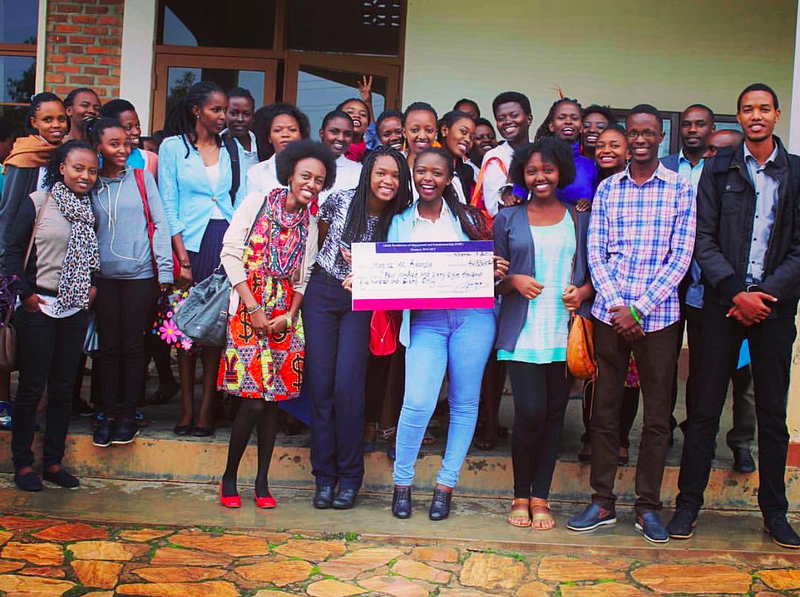
Imagine We founder Dominique Uwase with Akilah’s Entrepreneurship Class of 2017
Akilah celebrated Global Entrepreneurship Week with a Business Idea Pitch Competition for students across all three majors.
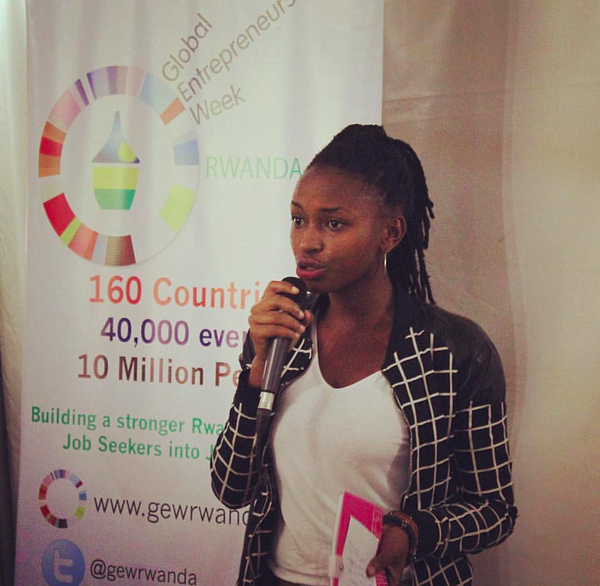
Students’ pitch ideas ranged from a virtual tailor, to lunch on wheels, to a magazine for girls. Pitches were judged on criteria including best disruptive innovation, social entrepreneurship, and best use of tech innovation. Phyllis Kabano took home the top prize for her idea to start a support and mentorship program for young girls, winning the judges over with her powerful, confident pitch. #GEW2016 #WomeninBusiness
Akilah welcomed Serge Nsawane Ndeke, one of Kigali’s most successful entrepreneurs of the hospitality and food processing sectors. Serge started Papyrus Restaurant and Masaka Farms, and stopped by campus to speak to Akilah’s entrepreneurship students about managing multiple businesses across a number of industries:
“See obstacles as a way for you to learn which way to go next. Overcoming obstacles is what will make you an entrepreneur.”
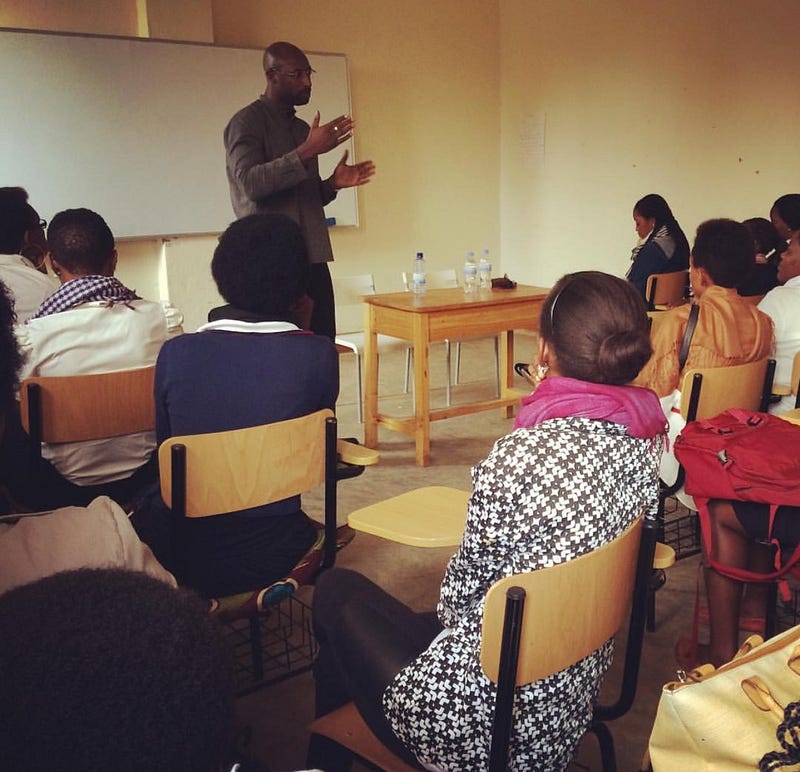
Serge speaking to students at Akilah
Akilah is currently in the process of transforming our academic model into a competency based education (CBE) system. CBE is a student-centered approach that requires learners to demonstrate competency in a range of measurable skills related to their diploma. CBE is particularly effective for preparing graduates for the workforce because it focuses on what students know and can do. This month, Akilah’s Chief Academic Office Rick Daniels brought four international curriculum developers to campus to begin the transition to our new academic system, including Jim Sheusi, Brooke Martinez,Kristine Miller, and Ariel Jagusztyn. Jim (pictured speaking to Akilah’s Hospitality Management ’17 students) is from Johnson & Wales University and is developing our new Information Systems curriculum.
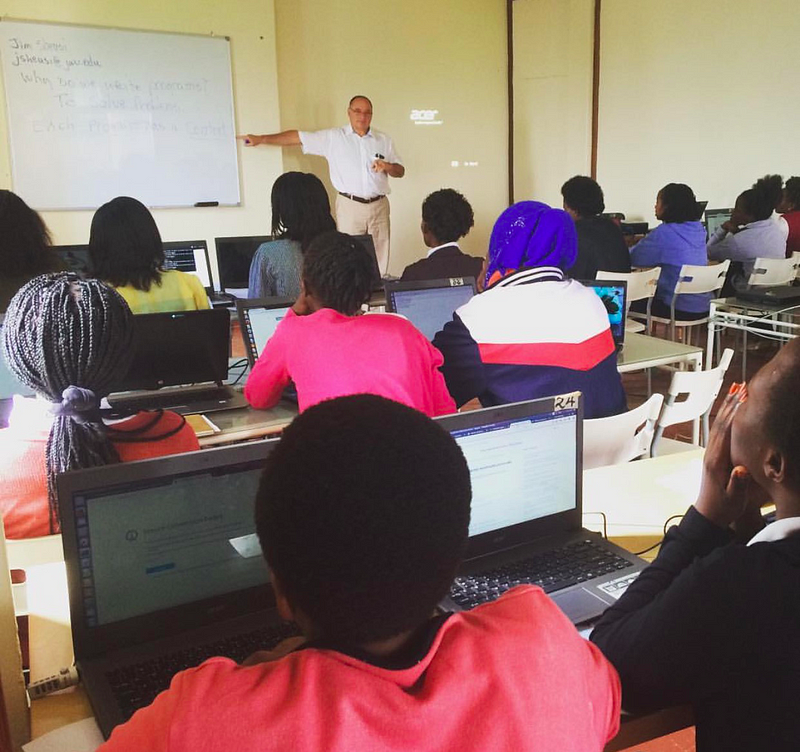
“This team surpasses my wildest dreams and expectations already. They are so enthusiastic and working incredibly well together — they are going to do wonders for our curriculum. This will be something Rwanda — and the world — has never seen before,” shared Rick.
Student Spotlight
Belyssia Belyse Nicishatse was a student at Akilah Burundi in Bujumbura and transferred to Akilah Rwanda in 2015 after political unrest and armed conflict made Bujumbura unsafe for students and staff. Read her story here on how she’s made the transition to Rwanda, and her goals to get back to Burundi in the future.
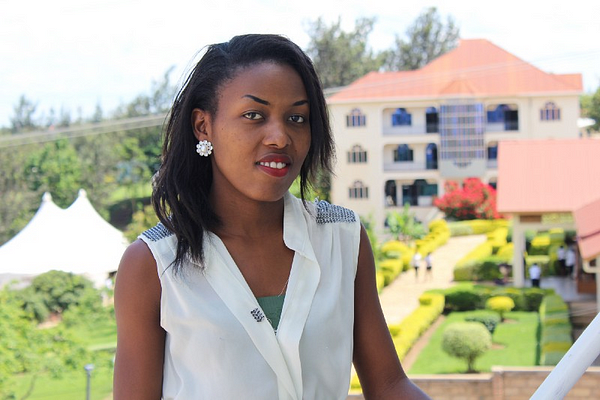
“I felt alone in the beginning. It was my first time to come and live in Kigali; I didn’t have any family members here and at first I was scared. I didn’t know how to interact with others — how was I going to communicate with my neighbours? I didn’t know who I would live with or how I would pay rent for myself — or find food. Living expenses are not the same here as in Bujumbura — everything is more expensive in Kigali. I had to find a way to be responsible for myself. It was a bit scary. But at Akilah they tell us to always be courageous and take risks, and I decided to do so. I was determined to find a way to make it work.”
Inspired by Belyssia? Apply to study at the Akilah Institute today!
